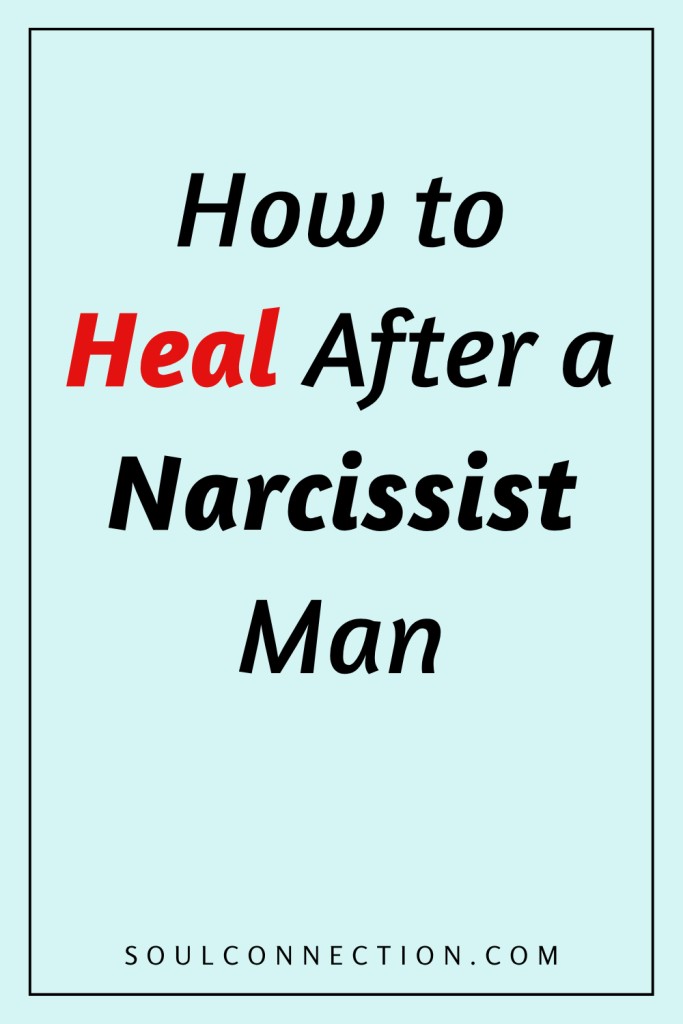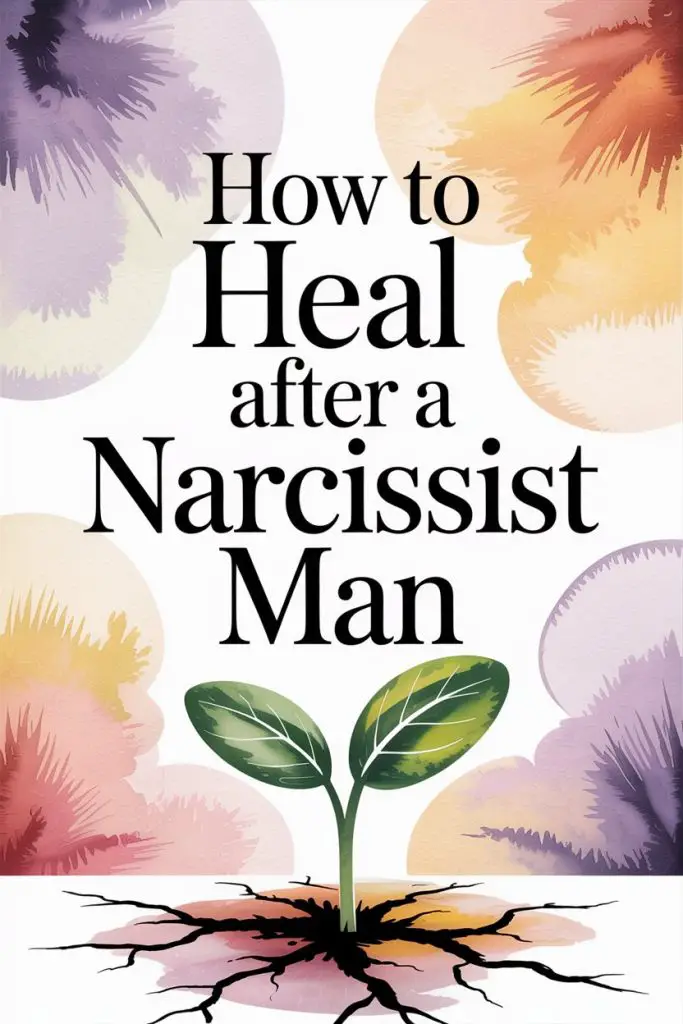Ah, narcissists. Nature’s way of reminding us that self-love comes in all the wrong flavors.
f you’ve extricated yourself from the clutches of a narcissist man—congratulations. You’re through the fun house, but the exit is just the beginning.
Healing isn’t about bouncing back to the person you were before; it’s about becoming someone who knows better. Someone who can spot the red flags without needing an actual marching band.
Let’s talk about putting yourself back together—in all your glorious, bruised, and beautifully wiser glory.
Acknowledge That It Wasn’t All Your Fault
Self-blame is a narcissist’s favorite party favor. You might find yourself replaying every conversation, wondering what you could have done differently. Spoiler: you did plenty.
A narcissist will twist reality until you’re apologizing for things you didn’t even do. Accepting that you were manipulated is painful, but it’s the only way to drop the weight of self-blame.
You’re not responsible for someone else’s emotional gymnastics routine.
Cut Off Contact (Yes, Really)
No, you can’t be friends. That’s the bait, and you’re not a fish. Narcissists thrive on continued access—your attention, your reactions, your confusion.
Block, mute, delete, and resist the urge to check in “just to see how they’re doing.” That path leads straight back to square one, and you didn’t survive all this just to start over again.
If shared kids or a mortgage complicate things, keep communication dry, direct, and as fun as diagnosing a leaky tap.
Let Yourself Be Angry (Without Setting Things on Fire)
Anger is the body’s way of saying, “Excuse me, that was not okay.” Narcissists are masters at turning your anger against you. Guess what? You’re allowed to feel it.
Scream into a pillow (the neighbors will thank you), journal your rage, or rant to a friend who won’t try to fix it. Just don’t text your ex about it—they’ll only use it as an audition tape for their next sob story.
Sort Out Your Reality From Their Fantasy
Gaslighting leaves you doubting your own memory, judgment, and maybe even your shoe size. Write down what really happened, no matter how petty it feels.
Get receipts—actual text threads, events, your own recollections. It helps to see, in black and white, that you’re not losing your mind. Your reality is valid, and their version was fiction. Badly written, too.
Rebuild Your Support System
Surviving a narcissist can leave you feeling socially shipwrecked. Maybe you drifted from friends or family because he convinced you they were “toxic.”
Maybe you’re worried about what people think (spoiler: they’re probably just glad to have you back). Reach out, even if it feels awkward.
Healthy support isn’t about grand gestures—it’s about someone who’ll listen without trying to diagnose you via Instagram.
Learn the Difference Between Healthy Love and Narcissistic Supply
Narcissists don’t want partners; they want cheerleaders, therapists, and scapegoats—preferably all at once. Look back at the relationship and spot the patterns: love bombing, walking on eggshells, the ever-present scoreboard.
Healthy love feels safe, steady, and a bit boring after all that chaos. That’s not a bad thing. Boring is underrated. Boring doesn’t keep you up at night wondering if you’re the problem.
Set Boundaries Like Your Life Depends On It
You probably got used to having your boundaries bulldozed. Time for a renovation. Start small—say no to things you don’t want, and don’t explain yourself into a corner.
Practice with people who don’t terrify you first (the barista probably isn’t plotting to invade your personal space). Boundaries are like fences: they keep the goats out, but let the good people in.
Befriend Your Own Needs Again
After a narcissist, your needs can feel irrelevant—a luxury you can’t afford.
Actually, they’re the basics. Hungry? Eat. Tired? Rest. Want to watch three hours of rubbish telly in your pajamas? Live your truth.
Start noticing what makes you happy, sad, anxious, or calm. You’re not selfish for putting yourself on the list. Selfishness is what you just escaped.
Get Curious About Red Flags, But Don’t Panic at Every Pink One
Spotting red flags is a survival skill, but don’t let it turn into a conspiracy board on your living room wall. Yes, trust has to be earned, and yes, some behaviors are non-negotiable.
But not everyone who forgets your birthday is planning to gaslight you into oblivion. Give yourself permission to notice warning signs without assuming disaster at every turn.
Try Therapy if You Can
Not every form of healing has to look like a 2 a.m. Google search. A good therapist is like a personal trainer for your brain—minus the spandex. T
herapy gives you a place to process what happened, rebuild self-esteem, and practice trusting someone safe. There’s no shame in needing help. Besides, your friends might be running out of patience for post-breakup rants.
Embrace the Awkward, Messy Middle
Healing isn’t linear. Some days you’ll feel like a superhero. Other days, you’ll wonder if you’ve learned anything at all. Progress looks a lot like three steps forward, one existential crisis back.
Celebrate the small wins. Maybe you smiled at a stranger. Maybe you didn’t reply to a “hey stranger” at 2 a.m. Maybe you just got out of bed. That’s plenty.
The Truth About Moving On
Healing after a narcissist man isn’t about pretending it never happened. It’s about owning your story—and trusting yourself to spot the next dodgy character before they rearrange your furniture and rewrite your calendar.
You’re not broken; you’re rebuilding. With time, patience, and the occasional sarcastic eye roll, you’ll not only survive—you’ll thrive.
And maybe, just maybe, you’ll even find yourself attracted to someone who gives more than they take.
Now there’s a plot twist worth waiting for.


